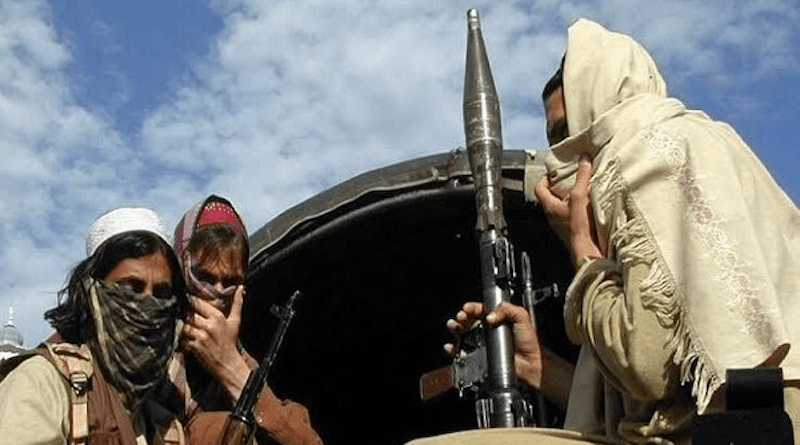Why Are Pakistan-Taliban Relations Strained? – OpEd
By Anwar Iqbal
Since the Taliban return to power in August 2021, security situation in Pakistan is worsening day by day due to which relationship between both has witnessed increasing strains. One key point of contention is the presence of the Tehrik-i-Taliban Pakistan (TTP) on Afghan soil. The TTP, a militant group with ties to the Afghan Taliban, has been launching attacks on Pakistani security forces, leading to a growing distrust between the two entities. Additionally, the issue of Afghan refugees in Pakistan and border management adds complexity, with Islamabad expressing concerns about the potential spillover of instability and violence from Afghanistan. These challenges underscore the intricate nature of Pakistan’s relationship with the Taliban, as both navigate through diplomatic intricacies and security concerns.
The Tehrik-i-Taliban Pakistan (TTP) has become a focal point in the strained relations between Pakistan and the Taliban. Stemming from a history of internal conflict and differing strategic priorities, the TTP poses a significant challenge to regional stability. Pakistan perceives the TTP as a direct threat to its security, accusing the group of orchestrating attacks within its borders. The Taliban’s stance on the TTP has been a source of contention, with Afghanistan’s Taliban accused of providing sanctuary to TTP militants. This complex interplay of interests and divergent security concerns has intensified tensions between the two.
Similarly, another critical aspect contributing to the strained relations is the presence of Afghan refugees in Pakistan. Hosting one of the largest refugee populations globally, Pakistan faces considerable strain on its resources, security apparatus, and social infrastructure. The Afghan refugee situation has exacerbated economic challenges and increased social tensions, contributing to a less-than-ideal environment for fostering positive relations. While the Taliban in Afghanistan has expressed concern over the plight of refugees, addressing the complexities surrounding their status and repatriation remains a contentious issue.
Moreover, border management and security present additional points of contention between Pakistan and the Taliban. The porous border shared between the two regions has facilitated the movement of militants especially the TTP, exacerbating security concerns for both parties. Pakistan has long emphasized the need for enhanced border control to curb illicit activities and militant movements. The Taliban’s approach to border management, influenced by historical factors and differing regional perspectives, has led to disagreements on strategic priorities. Resolving these disparities is crucial for establishing a more stable and secure border region.
The broader regional power dynamics also contribute to the strained relations. The involvement of various actors, including India, the United States, and other neighboring countries, adds complexity to the situation. Each external player pursues its own strategic interests, influencing the overall dynamics between Pakistan and the Taliban. Balancing these competing interests while addressing core issues requires diplomatic finesse and regional cooperation.
Economic considerations, including trade and development, play a role in shaping relations between Pakistan and the Taliban. Both entities have divergent economic priorities and dependencies, impacting their perspectives on regional economic integration. Resolving economic disparities and finding common ground on development initiatives could provide a foundation for improved relations.
Efforts to address these tensions through diplomatic channels and mediation are underway. International actors, including the United Nations and key stakeholders, have engaged in diplomatic initiatives to foster dialogue and ease tensions. Past mediation attempts and their outcomes provide insights into the challenges and opportunities for conflict resolution. Balancing the interests of all parties involved is crucial for creating a conducive environment for peaceful coexistence.
Looking ahead, the future of relations between Pakistan and the Taliban remains uncertain Sustainable solutions require a commitment to regional stability, conflict resolution, and addressing the underlying issues that contribute to strained ties. The role of international actors and ongoing diplomatic initiatives will be instrumental in shaping the trajectory of this evolving relationship.
Hence, the declining relations between Pakistan and the Taliban in Afghanistan reflect a dynamic interplay of historical complexities, contemporary challenges, and geopolitical considerations. The Taliban violation of Doha accord where they pledged not to harbor terrorists on the Afghan soil is a serious concern not only for Pakistan but also for international community. Navigating these challenges will require diplomatic finesse, regional cooperation, and a commitment to addressing the root causes that contribute to the strained ties. The future of this relationship remains uncertain, emphasizing the need for strategic engagement and conflict resolution to foster stability in the region. Last but not the least, the Taliban needs to reassess their policies vis-à-vis the neighboring states and international order in addition to human and women rights. Their relations have not only been strained with Pakistan but with Iran too.

